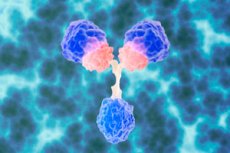New publications
Discovering TAF1's function could revolutionize cancer therapy
Last reviewed: 27.07.2025

All iLive content is medically reviewed or fact checked to ensure as much factual accuracy as possible.
We have strict sourcing guidelines and only link to reputable media sites, academic research institutions and, whenever possible, medically peer reviewed studies. Note that the numbers in parentheses ([1], [2], etc.) are clickable links to these studies.
If you feel that any of our content is inaccurate, out-of-date, or otherwise questionable, please select it and press Ctrl + Enter.

A new study led by Stephen D. Nimer, MD, director of the Sylvester Comprehensive Cancer Center at the University of Miami Miller School of Medicine, shows how a key molecule regulates the production of new blood cells, a process called hematopoiesis, that is disrupted in cancer. The findings could lead to new therapeutic strategies that target this molecule, a gene regulator called TAF1.
The new findings “not only challenge existing models of hematopoietic regulation but also lay the foundation for innovative clinical applications,” said Dr. Ramin Shiekhattar, co-author of the study, director of the Cancer Epigenetics Program at the Sylvester Center and chief of the Division of Cancer Genomics and Epigenetics. The paper was published July 16, 2025, in the journal Developmental Cell.
Cooperation
Longtime collaborators Nimer, Sheikhattar and their colleagues previously reported that TAF1 deactivation suppresses disease in a model of acute myeloid leukemia caused by the abnormal gene regulator AML1-ETO.
TAF1, they found, interacts with the AML1-ETO protein to activate cancer-causing genes.
TAF1 is part of a large molecular complex that binds to DNA and helps activate genes. This complex is involved in initiating transcription, the process of synthesizing RNA from DNA.
In the current study, the scientists took a closer look at how TAF1 works during normal blood cell development.
Support for cell maturation
Blood cells are formed from immature cells in the bone marrow called hematopoietic stem cells (HSCs).
HSCs are powerful cells. They are used in transplants. They have two key functions: the ability to self-renew and the ability to differentiate into mature cell types, including immune cells (T and B cells), myeloid cells (neutrophils and monocytes), platelets, and red blood cells. This process is called lineage commitment.
New data show that TAF1 is required for the correct activation of genes involved in lineage specialization in adults, but plays a lesser role in maintaining HSC self-renewal. TAF1 is also shown to function differently during embryogenesis, when the demand for blood production is much higher.
“TAF1 appears to serve as a key molecular switch, integrating transcriptional signals to balance stem cell maintenance and differentiation in adults,”
said Dr. Ramin Sheikhattar, co-author of the study.
Challenging established notions
Previously, it was believed that TAF1 and its complex are necessary for the activation of all genes throughout the life of any cell.
However, the new study adds evidence that TAF1 has a more selective role, including preferential activation of genes that trigger the differentiation of HSCs into mature blood cells.
“The most surprising finding is that adult HSCs can survive without an essential general transcription factor, and that loss of TAF1 only affects genes associated with differentiation and not genes that support self-renewal,”
said Dr. Fan Liu, first author of the study.
Nimer's team, together with bioinformatician Dr. Felipe Beckedorff, also found that TAF1 not only triggers transcription, but also removes the additional "braking" on the transcription process.
Future Prospects
Future research questions include examining whether TAF1 has similar functions in other stem cells important in cancer, such as those in the colon or brain.
Meanwhile, these discoveries provide impetus to research into drugs that target TAF1, with such compounds currently in development.
One of the challenges in hematology is finding drugs that kill cancer cells without interfering with normal hematopoiesis. These data suggest that TAF1 inhibitors may meet this criterion: TAF1 inhibition does not interfere with stem cell self-renewal or blood cell production, processes that are vital to life.
"The key question was whether silencing TAF1 would disrupt normal blood formation. This paper says no,"
says Dr. Steven Nimer
Other potential applications include using TAF1 to improve HSC expansion in the laboratory, which could improve the efficiency of stem cell transplantation.
